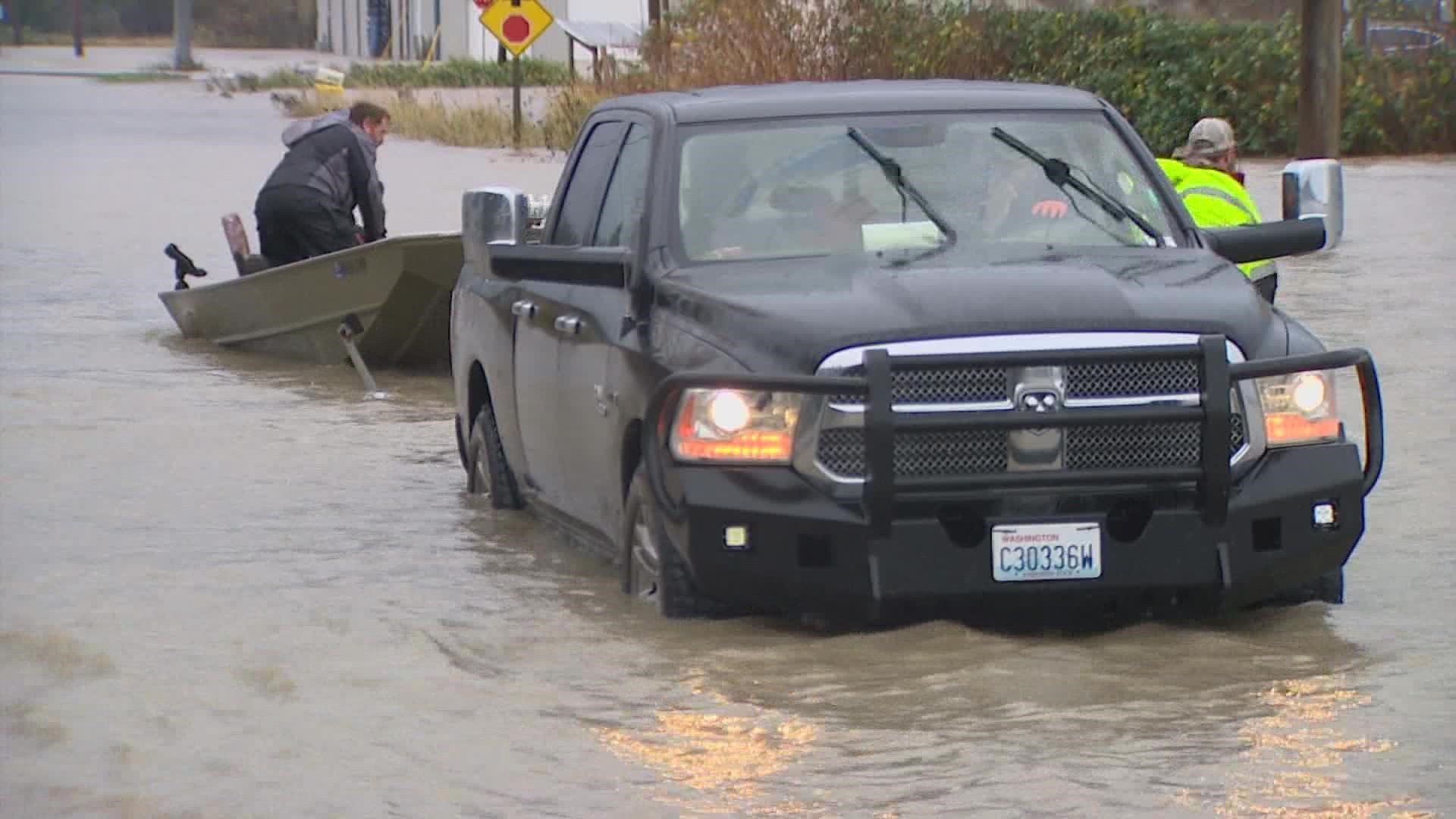WHATCOM COUNTY, Wash. — Debris piles stacked up along the streets of Sumas tell the story. Nearly three months after historic November floods, hundreds of people are still out of their homes.
About 450 homes in Sumas -- 75% of all those in the city -- remain unoccupied.
The November floods caused $100 million in damage and claimed one life.
All of that is prompting mayors in six northern Whatcom County towns to tell the state they've had enough.
"First of all there is no magic bullet," said Lynden Mayor Scott Korthuis. "It's gonna be a multi-pronged approach."
November's 70-year flood followed the previous year's 50-year flood, and it's anybody's guess what 2022 will bring.
"We think climate change has something to do with it, but we also think river management has something to do with it," said Korthuis.
Not willing to wait for the world to solve the climate crisis, the mayors of Blaine, Everson, Lynden, Ferndale, Sumas and Nooksack sent a letter to four state agencies with stakes in the Nooksack River.
The mayors say there is a blockage of sediment moving downriver that forces water over the banks during extreme rainfall.
"Not much has been done in the last 20, 30, even 40 years," said Korthuis.
The mayors believe the removal of the sediment buildup combined with the construction of more levies and a system to store excess water for use during increasingly hot, dry summers will help everyone.
One proposed plan would dam the north fork of the river above Nooksack Falls for use as a water storage location.
Chase Gunnell, communications manager for the Department of Fish and Wildlife said:
"While we empathize with flood impacts in Whatcom County and appreciate the seriousness of this issue for local residents, farmers, businesses, and others in this watershed, it’s worth underscoring that the Nooksack River is home to salmon, steelhead and bull trout populations protected under the federal Endangered Species Act, including fall and spring Chinook and winter steelhead. These threatened fish are a cornerstone of Indigenous tribal treaty rights and culture, as well as critical for endangered Southern Resident orcas, fisheries, and our region’s natural heritage."
Korthuis acknowledged it's a complex issue.
'"We want to work with our local tribes because they have a vested interest in this. We want to improve the salmon runs. Flooding is not helping the salmon runs," he said. "There are no fish in that part of the river. Is it an ideal solution? Probably not, but it is a solution that should at least be examined."
Korthuis said the Department of Ecology has agreed to a meeting later this month.
A spokesman for the Department of Agriculture said that agency is open to talking.
A State Department of Natural Resources spokesperson said the same, adding, "While DNR’s authority to tackle this issue does limit what we can do from a regulatory standpoint, we are committed to using the programs we do have to ensure Washington’s communities can stay vibrant and resilient as climate change affects the landscape we all depend on."
For now, Korthuis is simply happy a conversation is being started, but he stresses talking isn't enough.
"Let's start to take some new action," he said. "We have to do something."

